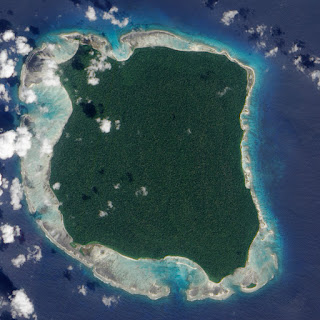It has long been an article of faith among central banks that inflation should ideally be around 2% (1-3%) a year. Not too low, not too high: just right. And it has been, more or less, for many years now, to the extent that we have almost forgotten, in our collective memory, the high inflation days of the 1970s.
Until recently, stimulus spending and quantitative easing in the aftermath of the economic devastation of the pandemic - and nobody really believes that that was wrong, despite the blistering of Pierre Poilievre - as well as other perfect storm ingredients like the war in Ukraine, has resulted in inflation of around 7% (closer to 11% in the case of food items, which is what many people seem to focus on). Too much demand chasing too little supply, as economists might tell you.
It is also an article of faith that the only way to fix high inflation is to increase interest rates. That might not be the most obvious response to us non-economists, but the idea is that higher interest rates encourage savings and discourage borrowing (and therefore spending). Then, in response to that, companies are supposed to increase their prices more slowly, or even lower prices, in order to encourage those savers to spend money and increase demand. This is therefore supposed to lead to lower inflation.
So, it's one of those convoluted economic theories, where x is supposed to lead to y, and y is supposed to lead to z, at least in the ideal world of perfect information and rational consumers where macroeconomists live. In practice, a lot can go astray along the way of the tortuous theoretical path, but we don't really have any good alternatives, so the Bank of Canada, and most other central banks around the world, has been pursuing just this path, with a series of "supersized" interest rate hikes of 0.5% - 9.75%, in one of the fastest rate-hike cycles on record. The expectation is that another such hike is in perspective later this week.
The problem is that quickly increasing interest rates can also lead a country into recession, if economic growth slows too sharply. So, you'd think that central banks would be very cautious with their supersized rate increases, especially given that the whole complicated process, described above, takes time to yield results (up to a year). It is a complex dance to negotiate the twin evils of inflation and recession. So, the banks should be sure to evaluate any small increments of progess - known as "data dependence" in the trade - so as not to over-compensate with their interest rate hikes.
That's the part I'm not sure is being observed. The inflation rate in Canada has already slowed from 8.1% to 6.9% in the last few months. That might not sound like much of a fall, but estimates of annualized inflation over the last three months are actually closer to 2.5%.
I get the impression that the BoC is just following along with a pre-prepared and predetermined plan, without stopping to re-evaluate and re-assess along the way. And that way recession lies.
UPDATE
It turns out that the Bank of Canada (BoC) increased the base interest rate by 0.5%, not the widely expected 0.75%, taking it to a 14-year high of 3.75%. This has fuelled some speculation that rises may be flattening out and the tide may be turning - the beginning of the end, so to speak - although BoC was at pains to warn that further rises will be forthcoming in the future.
Canada has, nevertheless, been the most hawkish among major trading countries in its use of monetary policy. It has raised interest rates by 3.5% this year, which will probably be matched by the USA next week, but this compares with just 1.25% in Europe and Switzerland, 1.75 is Scandinavia, 2% in the UK, 2.5% in2 Australia, and 0% in Japan. As a result, Canada's currency has seen the least losses against the US dollar of any of these countries' currencies.
Whether this slight curtailment of interest rate rises will be enough to avert a recession (probably a modest one) is doubtful, however. We are probably past the point of no return.




